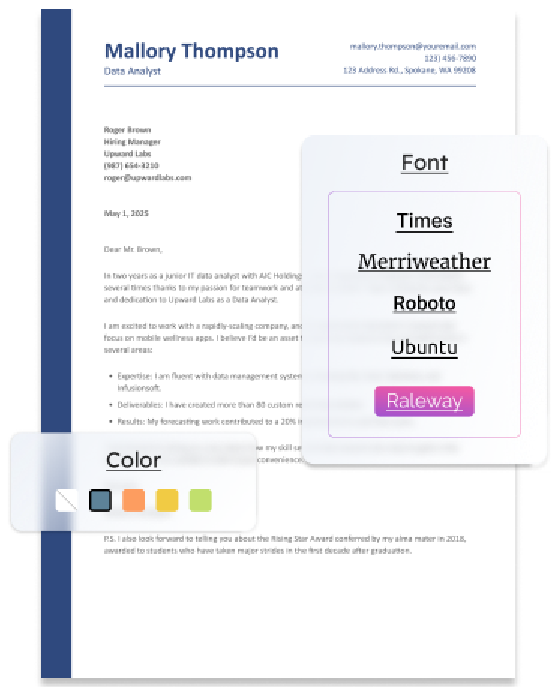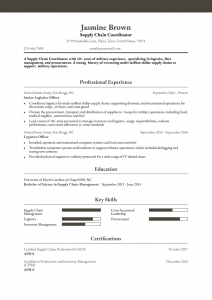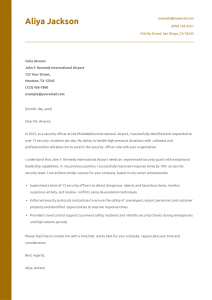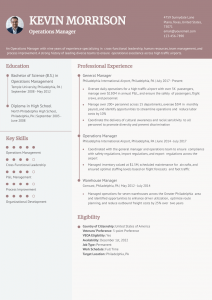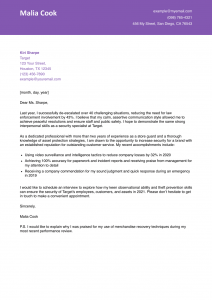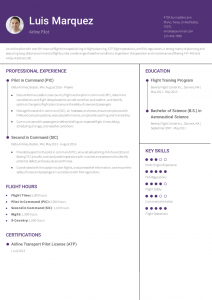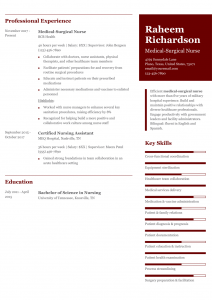Transitioning from military to civilian life can be challenging for many veterans. In today’s job market, you need to leverage every possible advantage to differentiate yourself from the competition. Building an accomplishment-driven cover letter is a great way to show potential employers how your military background makes you uniquely qualified as a candidate. Our guide features expert advice and examples to help you translate the most relevant aspects of your military career into a powerful cover letter.
Military-to-Civilian Cover Letter Templates and Examples
Security Guard (Military to Civilian) Cover Letter
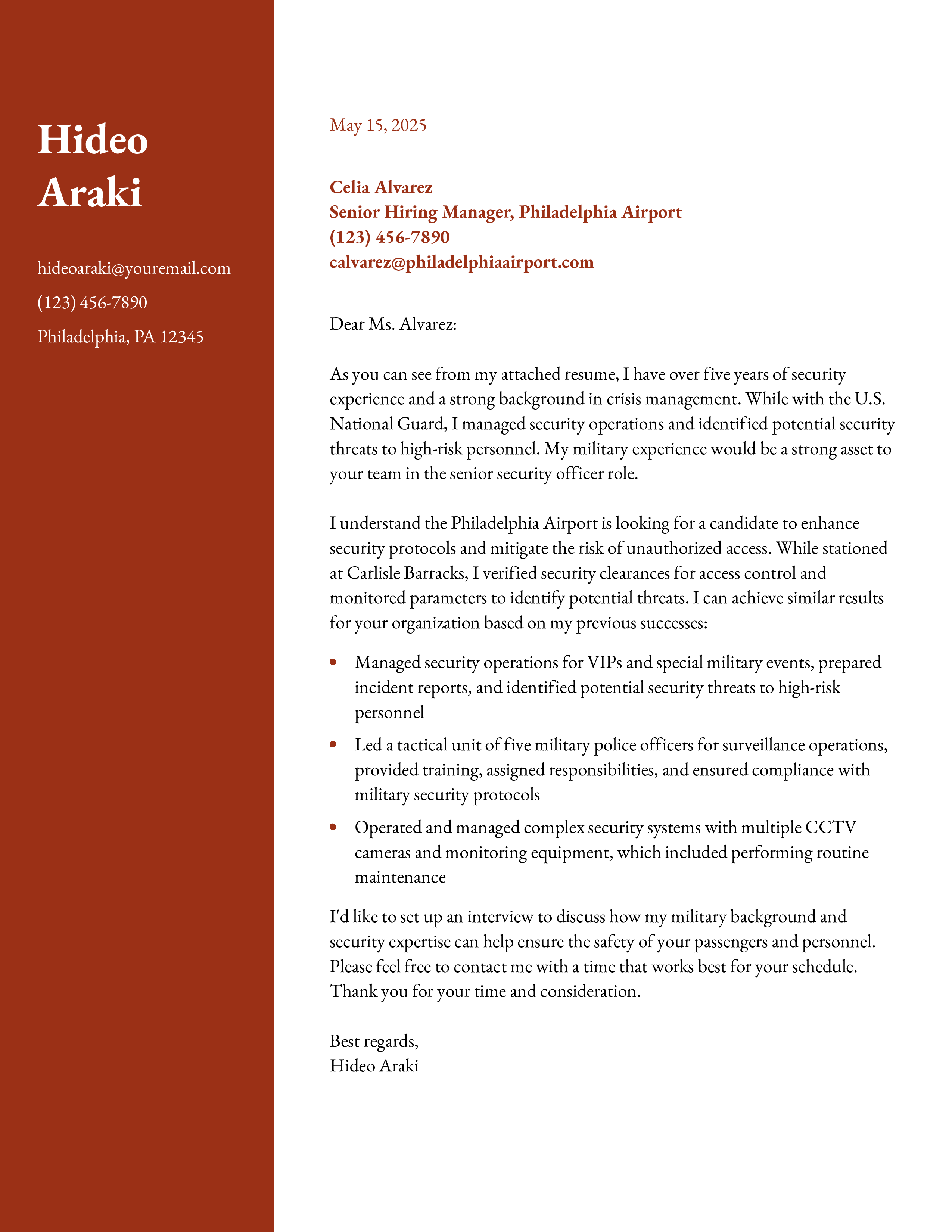
Cybersecurity Analyst (Military to Civilian) Cover Letter
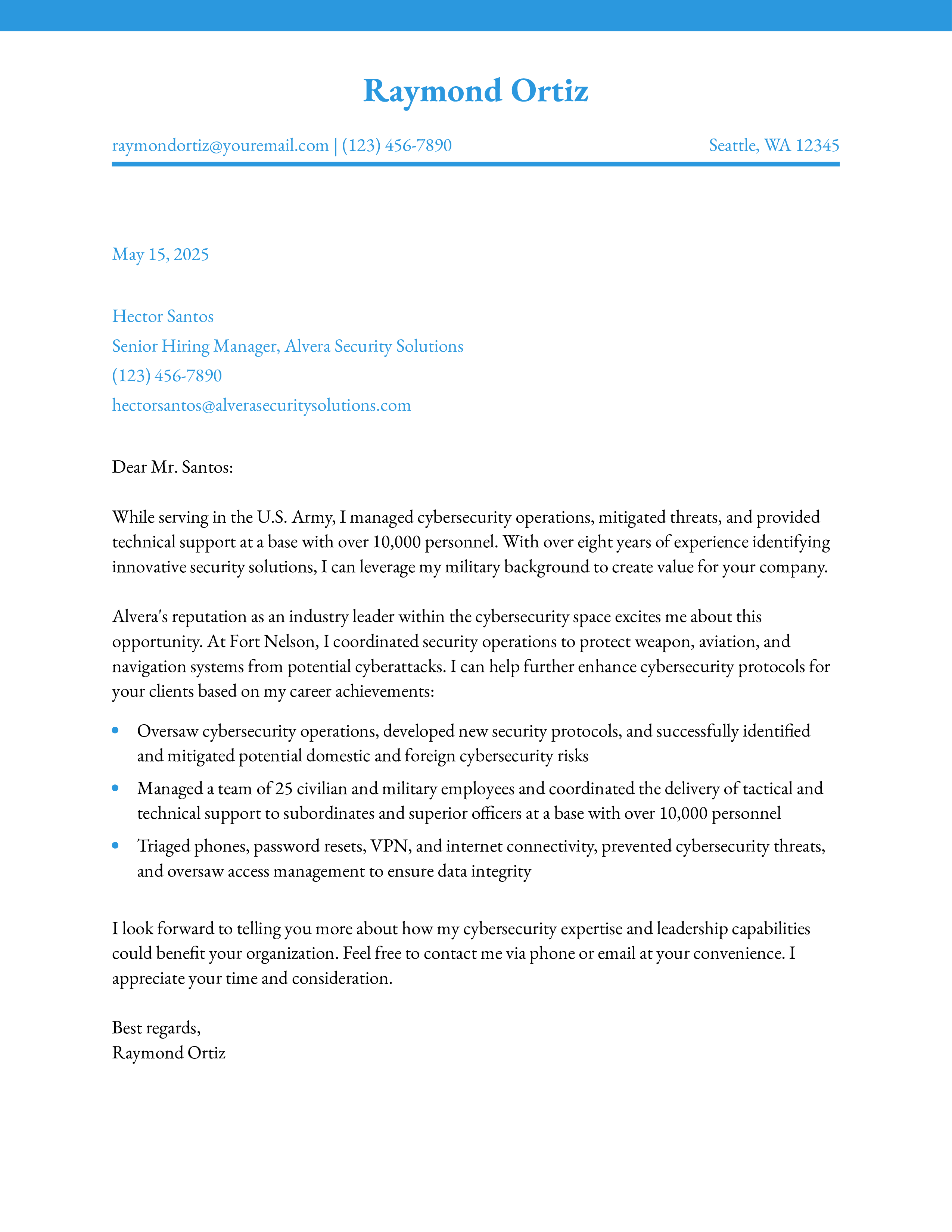
Supply Chain Analyst (Military to Civilian) Cover Letter
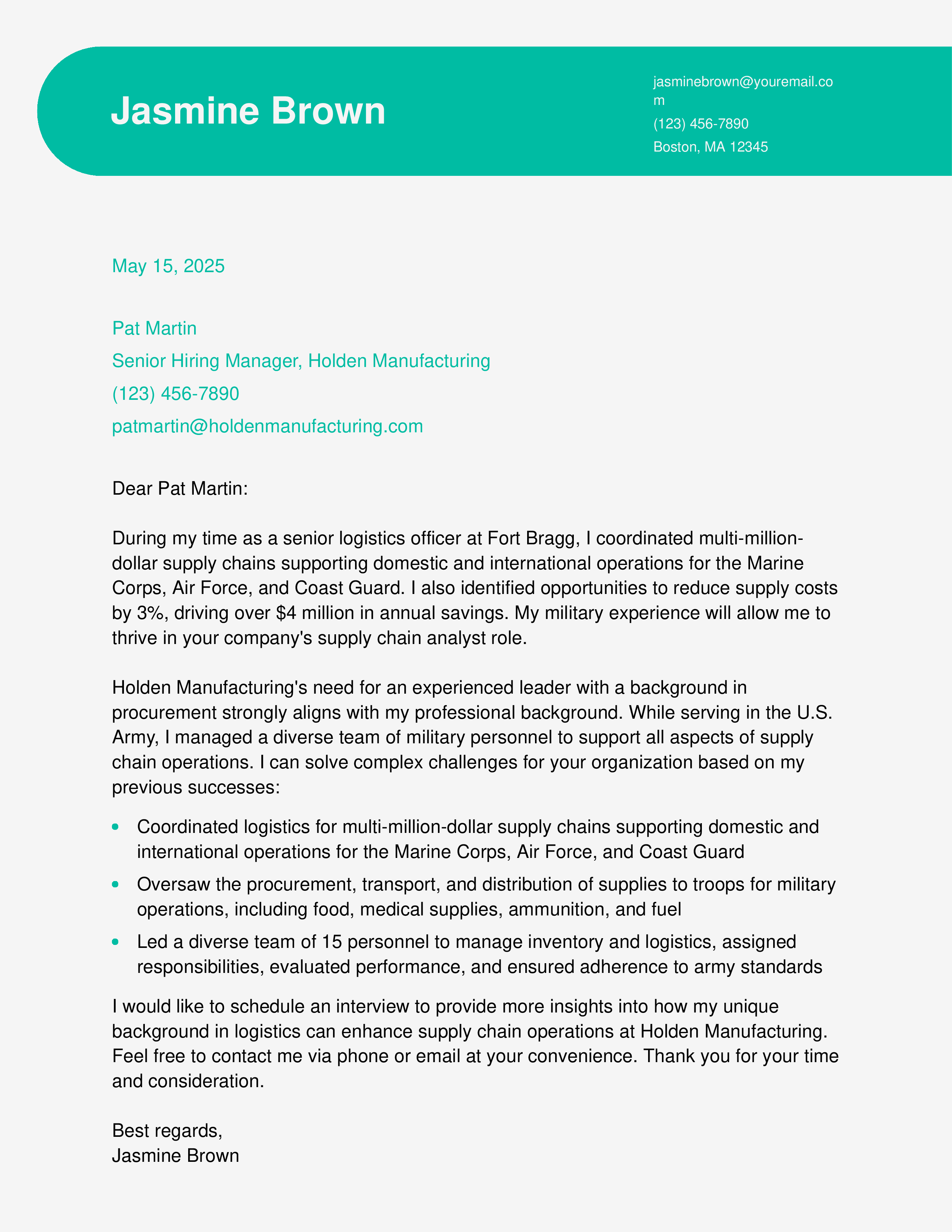
Operations Coordinator (Military to Civilian) Cover Letter
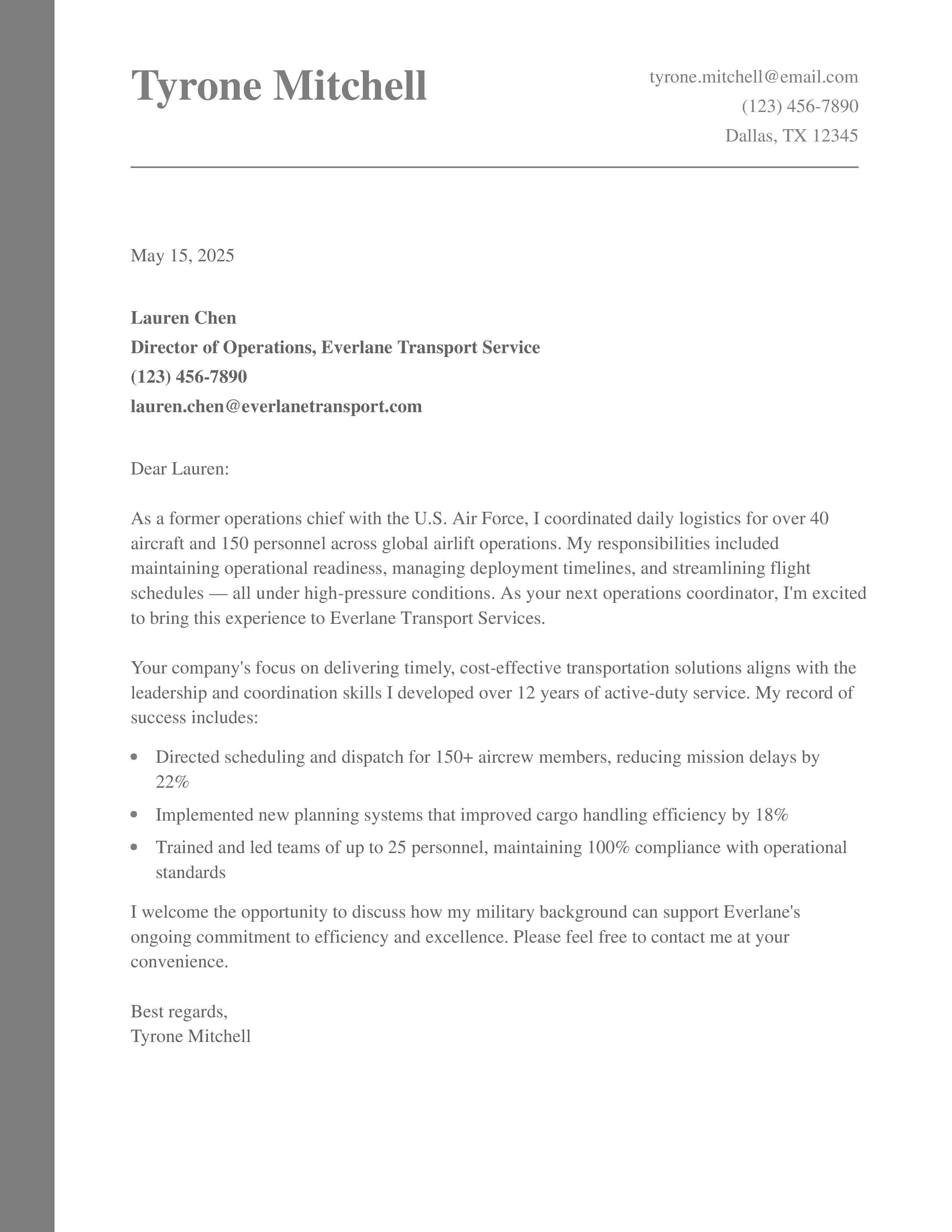
Project Manager (Military to Civilian) Cover Letter
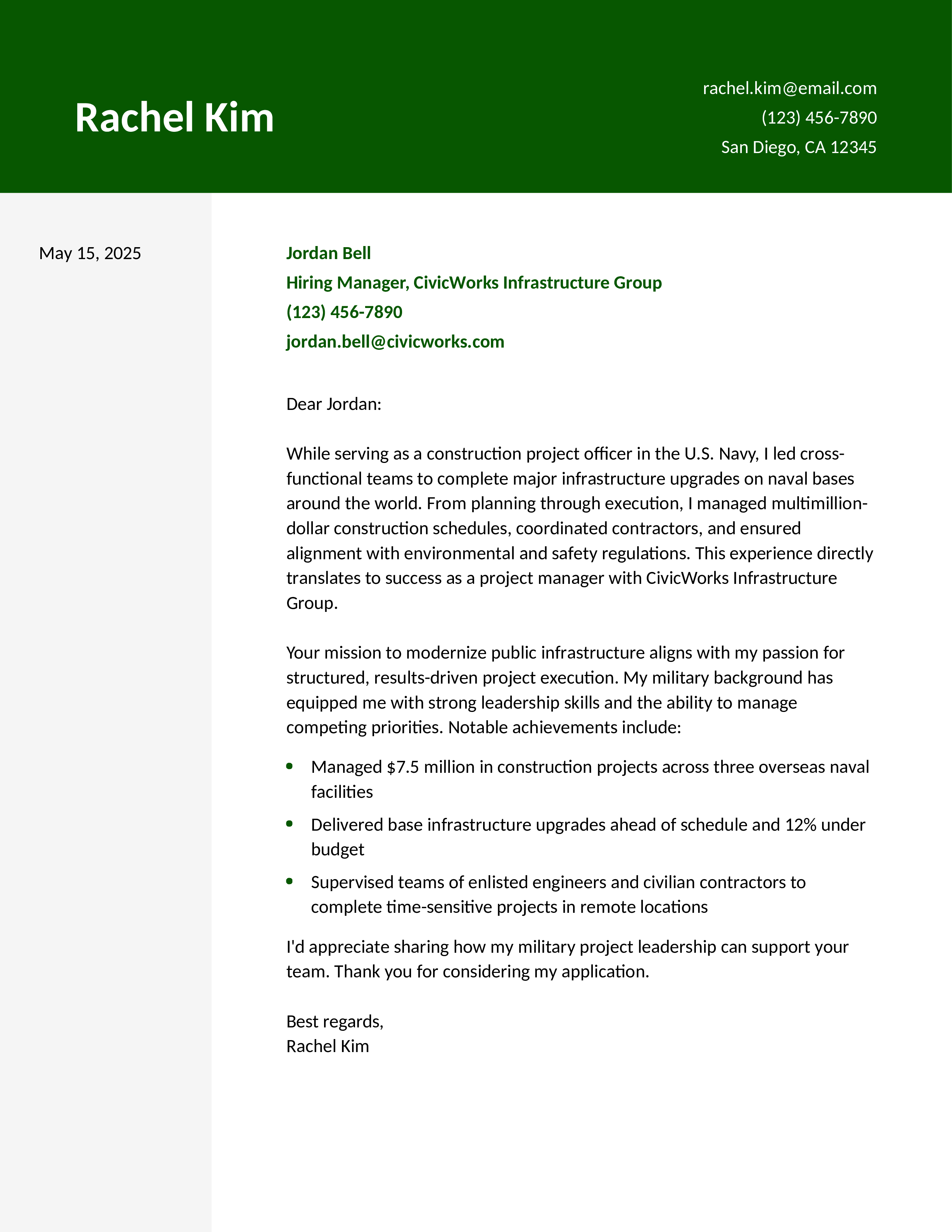
Facilities Manager (Military to Civilian) Cover Letter
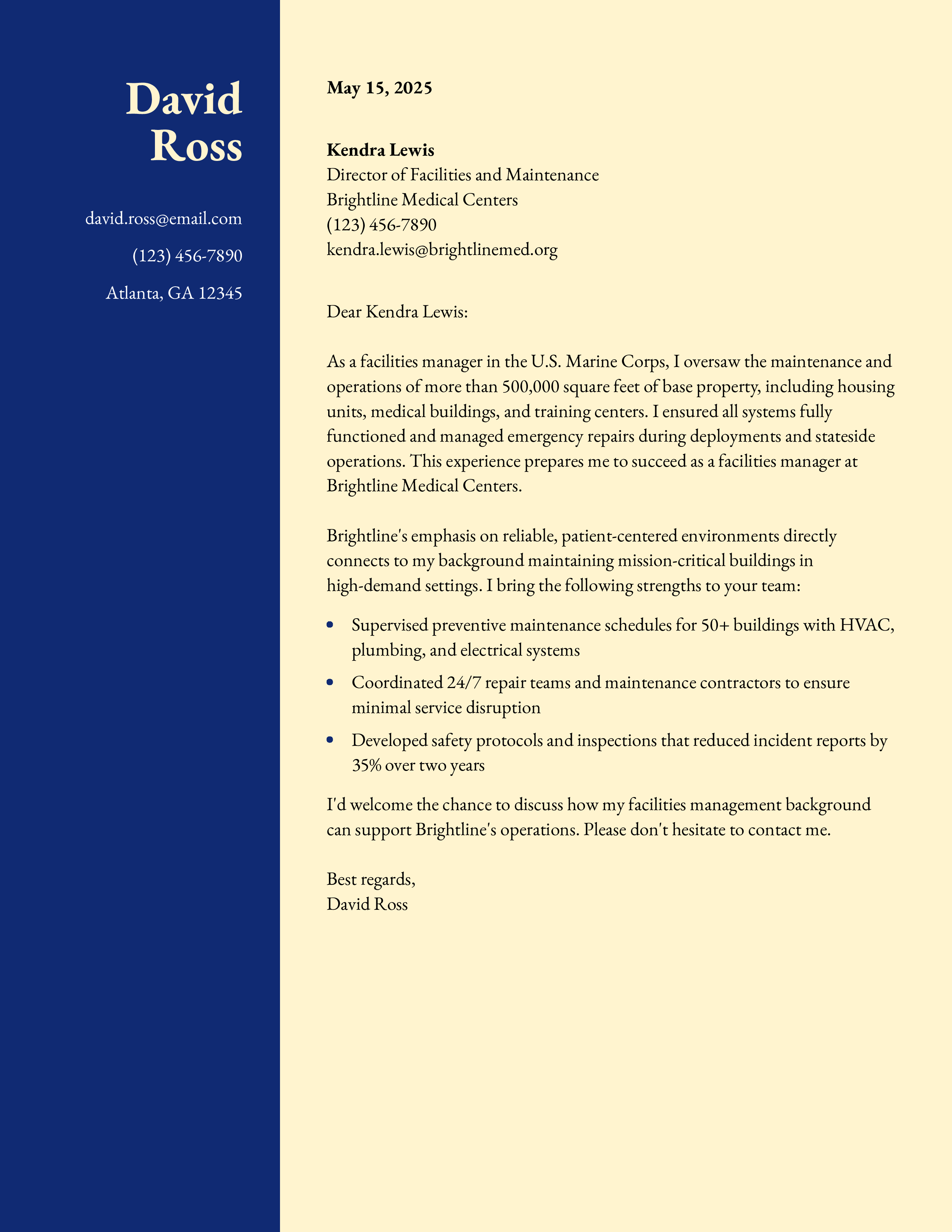
Our templates are crafted by professional resume writers to make creating your resume quick, easy, and effective.
- Professional resume template downloads
- Customized cover letter generation
- AI resume writing support
- Career-building resources and advice
Military-to-Civilian Text-Only Cover Letter Templates and Examples
How To Write a Military-to-Civilian Cover Letter
Building a great military-to-civilian cover letter requires careful planning and strategy. The key is to identify how your military experience can be reframed in a way that appeals to potential employers. Rather than populating your cover letter with military jargon and esoteric terminology, translate your achievements into accessible language the reader can easily understand. Below, we’ll provide guidance for each section of your military-to-civilian cover letter:
1. Contact information and salutation
List all of your contact information in the header of your military-to-civilian cover letter, including your name, phone number, email, and LinkedIn URL. Be sure to address the hiring manager by name — Mr. or Ms. [Last Name]. If you can’t find the hiring manager’s name, use a variation of “Dear Hiring Manager.” It’s best to avoid salutations like “To Whom It May Concern,” as your greeting should be direct and personal.
2. Introduction
The first step in building a strong military-to-civilian cover letter is creating your introduction. It’s important to make a positive impression on the hiring manager as quickly as possible, so lead with one of your most impressive achievements from your military career. Select an accomplishment that demonstrates how your military background can effectively translate to a civilian career. In the example below, the candidate showcases how their technical expertise can be applied to a role in the private sector:
Example
While serving in the U.S. Army, I managed cybersecurity operations, mitigated threats, and provided technical support at a base with over 10,000 personnel. With over eight years of experience identifying innovative security solutions, I can leverage my military background to create value for your company.
3. Body paragraphs
In the body paragraphs of your military-to-civilian cover letter, highlight your military experience and industry qualifications. Start by mentioning specific details about the company’s reputation and how your military background positions you as a uniquely qualified candidate for the position. Avoid burdening your sentences with military terminology, as this risks alienating the reader. Instead, focus on specific accomplishments that illustrate your translatable skills and experience.
Notice how, in the example below, the candidate is pursuing a security-related position. Instead of bogging down the paragraph with inaccessible language, they focus on demonstrating why their military background is a strength for this particular role. Using a similar approach will help facilitate your transition from a military career to civilian life.
Example
I understand the Philadelphia Airport is looking for a candidate to enhance security protocols and mitigate the risk of unauthorized access. While stationed at Carlisle Barracks, I verified security clearances for access control and monitored parameters to identify potential threats. I can achieve similar results for your organization based on my previous successes:
- Managed security operations for VIPs and special military events, prepared incident reports, and identified potential security threats to high-risk personnel
- Led a tactical unit of five military police officers for surveillance operations, provided training, assigned responsibilities, and ensured compliance with military security protocols
- Operated and managed complex security systems with multiple CCTV cameras and monitoring equipment, which included performing routine maintenance
4. Military-to-civilian skills and qualifications
Although it’s impractical to include a list of skills on your military-to-civilian cover letter, highlighting translatable qualifications is extremely important. Pay attention to specific keywords listed on the job posting and carefully weave these terms into your paragraphs. Include actual examples of how you’ve applied those skills to support military operations. This gives hiring managers a glimpse of how your experience can help you succeed in the position. Below, you’ll find a list of some key terms you may encounter during the job hunt:
| Key Skills and Qualifications | |
|---|---|
| Administration | Analytics |
| Communication | Continuous improvement |
| Crisis response | Cross-functional leadership |
| Cybersecurity | Database administration |
| Information technology (IT) | Logistics |
| Network security | Operations management |
| Process improvement | Project management |
| Risk mitigation | Supply chain management |
| Technical support | Team management |
| Vulnerability assessment | |
5. Closing section
Close out your military-to-civilian cover letter on a strong note. Include a call to action that invites the hiring manager to schedule an interview. Use this opportunity to further describe how your military background will allow you to bring a unique perspective to their team. Be sure to thank the hiring manager for their time and consideration in the last sentence.
Example
I’d like to set up an interview to discuss how my military background and security expertise can help ensure the safety of your passengers and personnel. Please feel free to contact me with a time that works best for your schedule. Thank you for your time and consideration.
Best regards,
Hideo Araki
Military-to-Civilian Cover Letter Tips
1. Quantify your military achievements
Incorporating hard numbers and data is a great way to show how your military background can create value for potential employers. In the example below, the candidate highlights their experience managing multi-million dollar supply chains and reducing operating costs. This effectively demonstrates how their military experience can be applied in a business setting:
During my time as a senior logistics officer at Fort Bragg, I coordinated multi-million-dollar supply chains supporting domestic and international operations for the Marine Corps, Air Force, and Coast Guard. I also identified opportunities to reduce supply costs by 3%, driving over $4 million in annual savings. My military experience will allow me to thrive in the supply chain analyst role with your company.
2. Feature your leadership capabilities
One of the selling points of hiring a candidate with a military history is their leadership experience. Serving in the military allows you to provide a unique tactical approach that civilian candidates might lack. In the example below, the applicant showcases how they managed diverse teams to support supply chain operations:
Holden Manufacturing’s need for an experienced leader with a background in procurement strongly aligns with my professional background. While serving in the U.S. Army, I managed a diverse team of military personnel to support all aspects of supply chain operations. I can solve complex challenges for your organization based on my previous successes:
3. Highlight translatable skill sets
When transitioning from a military career to civilian life, it’s essential to emphasize key skill sets that match your target role and industry. This doesn’t mean ignoring your military background but rather highlighting relevant aspects of it that can help you stand out as a candidate. For example, this candidate emphasizes how they utilized their cybersecurity expertise to mitigate potential threats to critical military systems, which shows they can handle similar situations in the private sector:
Alvera Security Solutions’s reputation as an industry leader within the cybersecurity space is what excites me about this opportunity. During my time at Fort Nelson, I coordinated security operations to protect critical weapon, aviation, and navigation systems from potential cyberattacks. I can help further enhance cybersecurity protocols for your clients based on my career achievements:
Military-to-Civilian Cover Letter FAQs
Why should I submit a military-to-civilian cover letter?-
The cover letter provides a unique opportunity for individuals transitioning from a military career to show how their background can translate to a civilian job. In a competitive job market, you may encounter unique challenges, as some employers will prefer candidates who have experience working in the private sector. The cover letter allows you to cite your military experience as a strength that can help differentiate you from the applicant pool.
How long should my cover letter be?-
Although you may be tempted to provide an in-depth overview of your military experience, it’s best to keep the cover letter brief in most cases. Limit your document to 400 words or less and avoid long-winded paragraphs. Keep the reader’s attention on your most relevant achievements and qualifications to demonstrate the value you can bring to potential employers.
Should I use artificial intelligence to write my cover letter?-
While artificial intelligence (AI) has continued to advance, we can’t recommend using these tools to write your entire cover letter. Leveraging AI software to give yourself an initial draft is acceptable, but infuse your document with your own voice to truly make a lasting impression on the hiring manager.
Craft a new cover letter in minutes
Get the attention of hiring managers with a cover letter tailored to every job application.



